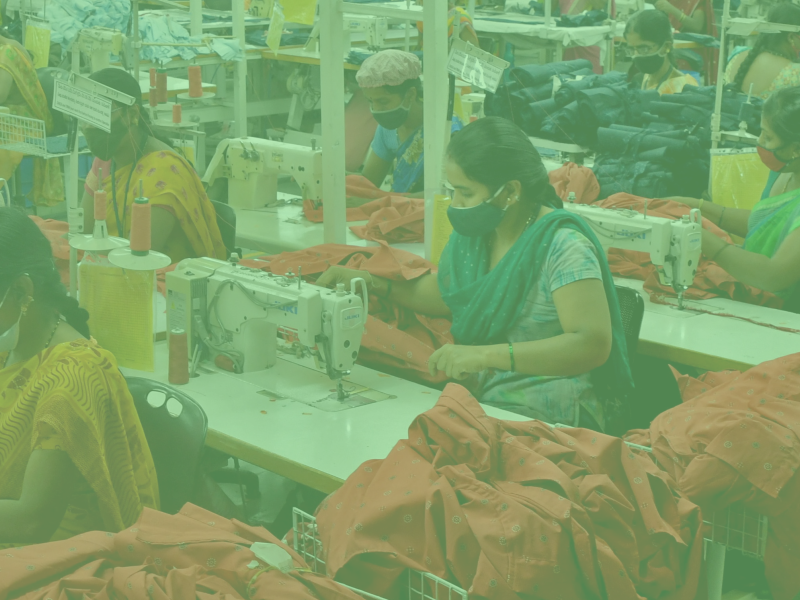As the world grapples with the Novel Corona Virus or COVID-19, the internet is replete with stories of how work from home (WFH) is changing work as we know it. The only solution to fight the virus that governments could come up with was lockdown and isolation of people. Across the globe, unplanned and poorly implemented lockdowns pushed working people towards poverty and starvation. Meanwhile, employers searched for opportunities in the crisis.
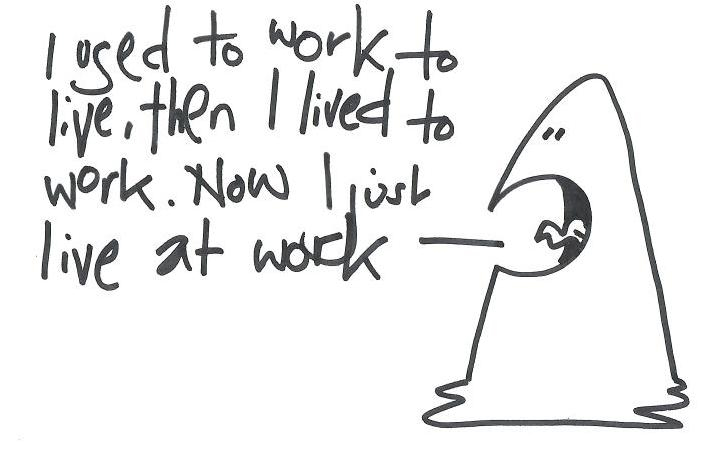
Work from home was the ideal topper on the list. Six months down, social media platforms are overflowing with personal accounts of burnout, anxiety and the overbearing feeling of living at work rather than working from home. Medical practitioners to academicians and even companies like Microsoft have spent much time and energy to conclude what the trade unions have been saying for long – we are overworked beyond exhaustion and the feeling of being isolated has grown. That our capacity to bargain for our rights has been badly hit and currently it is under an unprecedented attack from those who seek to maximise their profit in the name of WFH. Employers are loving work from home so much so that tech companies which were always worried about data security and wouldn’t let workers carry their mobile phones or pen drives in office premises are asking workers to explore the option of working from home permanently. Microsoft, Twitter and Amazon have all extended permanent WFH or remote work options for their workers.
Why do the companies want us to work from home?
Employers are guided by a single motive – they want to maximise their profit. A back of the envelope calculation makes it amply clear that our working from home makes economic sense to the employers.
Consider a person based in NOIDA working from home in an ideal condition – that she works for 8 hours a day. She uses a laptop, a mobile phone, a tubelight in her room and a fan. To work from home she also needs a stable broadband internet connection. The cost of electricity in NOIDA is Rs.8 per unit (for commercial use which is the price your employer would be paying if you were working from the office). Let us calculate her expenses on the bare minimum that she uses to continue to work from home.
| Device | Power Consumption (in watts) | Cost per month (in Rs.) |
| Computer | 80 | 156 |
| Fan | 75 | 146 |
| Tubelight | 40 | 78 |
| Mobile charger* | 5 | 3 |
| Total | 383 |
*charged once a day for 2 hours
Add to this the cost of a decent internet connection at Rs.800 per month and that makes it clear that the company is straight away dumping Rs.1,183 per month of expense on her while she continues to work from home. If her company employs 10 people, it is easily transferring around 1.5lakh in expenses only on electricity bills on to its employees. Note that other expenses like the rent of the office building, its upkeep and maintenance are not included in this yet. Thus, it makes perfect sense to the employers to keep us working from home.
But I have flexible working hours!
Flexible working hours are at best a mirage. The time we think we are saving on commute is the extra time we are putting in at work. A study conducted by Nord VPN on internet traffic shows that during the lockdown all of us have ‘voluntarily’ worked at least 2 hours of overtime without pay. The pressure that we feel while we are working from home to be productive is psychological and the employers are using it to their advantage to pile up more work on us.

And, we are made to crave for flexibility because we work unusually long hours. Over 64% Indians feel that they are deprived of holidays. 94% Indians check work email even while on vacation, which is the highest in the world, followed by France (93%), Thailand (92%), Malaysia (91%) and Mexico (91%). India is not only ranked the highest with 31% of employed people not taking vacations due to workload but also in cancelling holidays because they feel pressured to be present in all key decisions of their companies. Employers promote slogging so much so that Japanese workers have a term for it – Karoshi – meaning death by overwork. While WFH makes us believe that we can finish household errands, tend to children or elderly parents or a sick partner – it actually does not happen. It only adds to the workload, especially in the case of women who find themselves burdened with care work on top of office work. Flexibility comes with its demand to be available round the clock, take that phone call from doctor’s clinic or attend that one video meeting with co-workers while cooking because it’s oh just a small call. This means we never dissociate from work even when we are taking a toilet break. The 8 hour work day remains a distant dream for most of us, by making us work from home employers are snatching from us whatever little of that right remains.
It’s not just the working hours that the employers are after. They are also trying to snatch away the paid leave. If we were not working from home and felt sick we could have availed sick leave or if one had a personal engagement like a family function to attend etc. one could have availed a casual or an earned leave. A day off for which the employer would have had to pay us even when we were not putting in our 8 hour of work. This right was a result of a prolonged fight against employers by working people like us. In a WFH scenario we agree to take a phone call while celebrating our child’s birthday or measuring our temperature while in bed because taking a break has been stigmatised. We are rated by our bosses and peers alike. We are made to feel that we are not contributing enough, that we can’t ‘manage’ our time well and that we are not productive when left un-supervised. In this scenario we become our own supervisors and push our limits to overcompensate. We space out work between household responsibilities and try to finish more work than we would be normally assigned at the workplace, just to show that we are productive. At the workplace we see the clear conflict between the interest of our supervisors who want to get more and more work done from however, when we are made our own supervisor we overexploit our energies to justify to the bosses that we are not sitting idle. Employers do not let us work from home ‘un-supervised’ but because they benefit from making us our own supervisors.
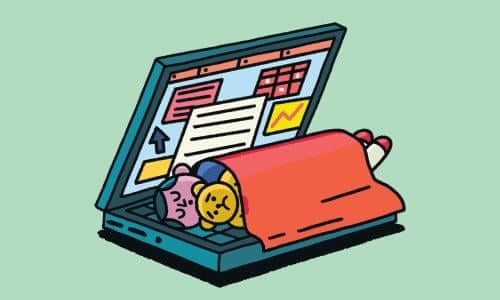
The pressure to be productive and not being able to take the day off is our employers’ silent victory over our right to avail paid leave. We are voluntarily giving up on our rights by continuing to work from home.
Employers love keeping us in isolation!
By keeping us home employers succeed in isolating us. This has a direct impact on our capacity to unionise against the bosses. If there is one thing that employers hate more than losing money it is our Right to Freedom of Association. WFH keeps us from the social interactions that a workplace allows with our co-workers. Taking orders from the software and ogling at the screen isolates us from the human touch and therefore serves the purpose of the employers who want to keep us from talking to each other and sharing information. Ever heard that a ‘professional’ never shares their salary? That’s the way management ensures pay disparity at the workplace. When two people doing the same job and putting the same time in finishing the job never get to talk to each other and share the information on how much they are paid chances are that they are both being pitched against each other and cheated of their fair wages. Union negotiated wages, transparent and applicable to all, therefore are always better than individually negotiated contracts. This becomes evident in the case of gig-workers.
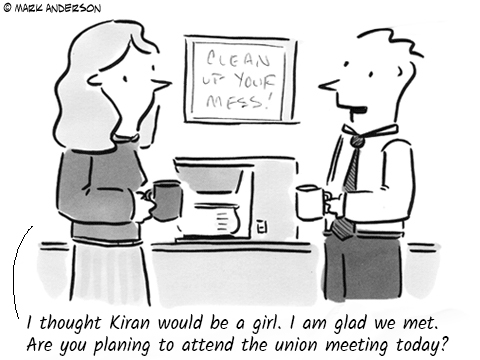
For example, let us consider the case of Uber workers. For the same ride two drivers may get entirely different rates but they wouldn’t come to know of it because the app interface does not let them communicate with other Uber workers. Even if a worker raises a dispute it can be easily shoved under the carpet because it’s easier to drown an individual voice than the voice of the collective. This isolation works in the favour of the employer. On the other hand, Irish and Dutch workers employed by Doordash and Deliveroo (like Dunzo and Swiggy in India) have got together to negotiate the charges per delivery and the rate of overtime work. The collective action of the union has ensured that everyone gets a fair wage.
But, we are saving a lot on the commute!
Right. That is an argument worth pondering upon. We must consider the reasons which force us to waste long hours and a hefty sum in commuting to our workplace. We are forced to commute long hours to our workplace because it is impossible to afford decent housing around economic centres. Lack of rent control and absence of public housing coupled with our meagre wages not adjusted to inflation pushes us to cut down on ‘luxuries’ such has having a decent housing closer to work.
Another reason for a long commute is the lack of public transport which severely impacts our travel time, expense and safety during the travel. The automobile lobby’s nexus with government has successfully killed the public transport system. Trees are cut with tall claims that the new highway or ring-road will give us relief from traffic and cut down our travel time. In no time the same highway is jam-packed with vehicles and become a commuting nightmare, also adding to the depletion of environment. This problem can be easily solved by investing in public transport.
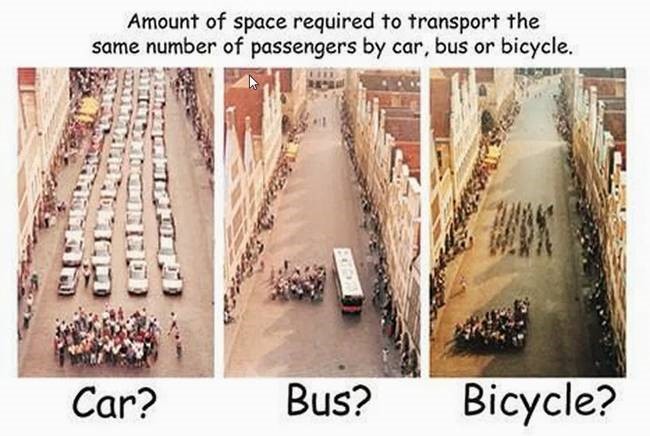
And, most importantly what about our Health and safety?
Furthermore, while we are at the workplace our employer is responsible for our health and safety. OSH regulations cost companies money. Employers have to ensure proper lighting, ventilation, fire safety etc. Imagine while working from home you have a short circuit and your computer/phone blows up. Who is responsible for the fire and the resulting damage? It is You. The same incident at the workplace is the responsibility of the employer and if you get hurt you are entitled to a compensation. Employers have long been trying to shrug off these responsibilities and lobbying hard to amend labour laws in their favour wherein they will have no responsibility for the safety and well-being of those who they employ. By making us work remotely employers easily achieve this goal. Your health and safety is entirely your responsibility while you work from home.
Why we must get back to work
We are dreading to go back to our previous workplaces because it reminds us of the abusive work culture, the drudgery of commuting and for many of us the entitlements mentioned above never existed. Employers denied us paid leave, an 8-hour work day and our rightful wages. The ‘normal’ that existed before the lockdown was indeed exploitative but it is set to get worse if we do not push back. While we were supervising ourselves to be productive from home government passed 3 labour codes without any debate or deliberation. These codes are heavily tilted in the favour of employers and snatch away all the rights discussed above. It allows for Fixed Term Contracts, makes the contractor our principle employer and criminalises our right to strike and to form unions.
We must not go back to the old ‘normal’. The pandemic has given us the opportunity to change all that was wrong with the existing work culture for better. Let us not miss the chance by accepting work from home. Our collective action can stop work from home and self-exploitation from becoming the new normal.


